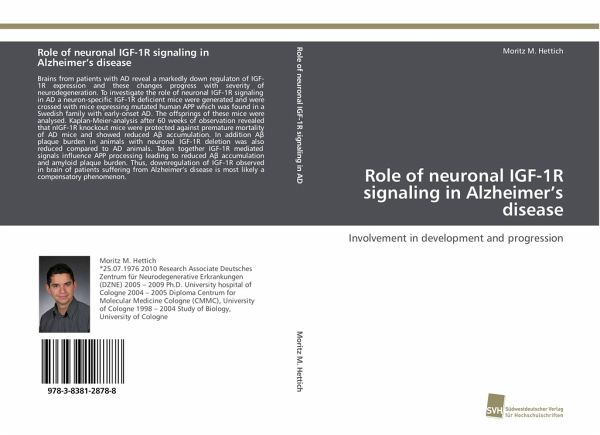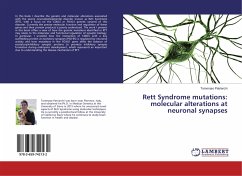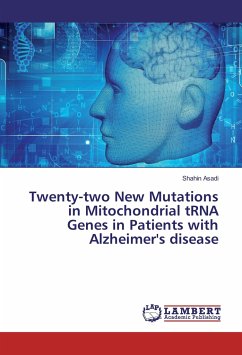
Role of neuronal IGF-1R signaling in Alzheimer's disease
Involvement in development and progression
Versandkostenfrei!
Versandfertig in 6-10 Tagen
36,99 €
inkl. MwSt.

PAYBACK Punkte
18 °P sammeln!
Brains from patients with AD reveal a markedly down regulaton of IGF-1R expression and these changes progress with severity of neurodegeneration. To investigate the role of neuronal IGF-1R signaling in AD a neuron-specific IGF-1R deficient mice were generated and were crossed with mice expressing mutated human APP which was found in a Swedish family with early-onset AD. The offsprings of these mice were analysed. Kaplan-Meier-analysis after 60 weeks of observation revealed that nIGF-1R knockout mice were protected against premature mortality of AD mice and showed reduced Abeta accumulation. In...
Brains from patients with AD reveal a markedly down regulaton of IGF-1R expression and these changes progress with severity of neurodegeneration. To investigate the role of neuronal IGF-1R signaling in AD a neuron-specific IGF-1R deficient mice were generated and were crossed with mice expressing mutated human APP which was found in a Swedish family with early-onset AD. The offsprings of these mice were analysed. Kaplan-Meier-analysis after 60 weeks of observation revealed that nIGF-1R knockout mice were protected against premature mortality of AD mice and showed reduced Abeta accumulation. In addition Abeta plaque burden in animals with neuronal IGF-1R deletion was also reduced compared to AD animals. Taken together IGF-1R mediated signals influence APP processing leading to reduced Abeta accumulation and amyloid plaque burden. Thus, downregulation of IGF-1R observed in brain of patients suffering from Alzheimer's disease is most likely a compensatory phenomenon.












